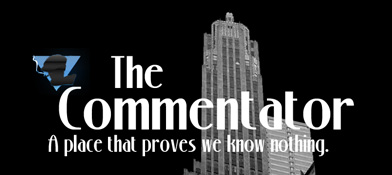In College 16 years ago (that's Grade 12 and 13 for the rest of the continent) I read a bool called Mediaspeak": How Television Makes Up Your Mind (1983) by Donna Woolfolk Cross. I found it to be informative back then and recently began to give it a 2nd read now that I am older, wiser and prettier.
I decided to find out more about the author. It's never a bad idea to find out more about what makes a writer tick. Unfortunately, not much was found about the book in terms of reviews and forums. However, I did stumble upon her 1996 novel that threatens to be the next blockbuster film.
'Pope Joan' is the story of a woman who allegedly became Pope in the 9th century - the darkest point of the Dark Ages. The minute I saw this I thought about the 'Da Vinci Code.' Are we going to see another mammoth debate about the Catholic Church's 'cover up' based on dubious facts? As a student of history, it was easy to refute Dan Brown. Will it be as easy to do the same for this novel?
The Church has been remarkably (not that many people are aware) open about these subjects. They have opened their vaults giving access to their documents as early as the 19th century.
The Middle Ages was one historically complexed mess. It is very, very easy to pick a fable, legend and myth and turn into fact during a time when Europe was reforming itself after the fall of Rome. It was a volatile and violent (if not downright exciting and creepy) period in European history. As was the case with the 'Code' too many gaps in evidence are present to conclusively determine there was a female Pope.
I am sure it's a gripping tale. However, people should take a course in European Medieval history before they read it if they plan to assume this to be a history lesson. Just like people who swear by the 'Code' should read a little more critically the life of Leonardo Da Vinci. That's my advice.
That said, I remain curious about the author who penned Mediaspeak. In the 23 years since it was written I wonder if she feels if the book remains relevant.
Is advertising more powerful than the President of the United States? Is media a threat to democracy and doesn't even know it? How entrenched and effective are ads to the bottom line? What comes first: The demand or the supply in advertising? In other words, is giving 'what the people want' a fabricated marketing ploy?

No comments:
Post a Comment
Mysterious and anonymous comments as well as those laced with cyanide and ad hominen attacks will be deleted. Thank you for your attention, chumps.